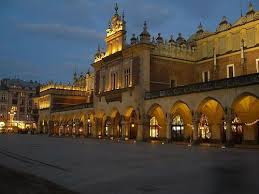The scandal that ensued revealed shocking levels of poor care which certainly caused great suffering to many patients, and a certain number of deaths. Just how many deaths is difficult to determine. Headlines at the time of “400 to 1200” excess deaths were deeply misleading, as was the report that established that number, by Dr Foster Intelligence, a healthcare analysis company.
Insofar as the number means anything, it is that there were that many more deaths than would have been expected given the levels of illness recorded among the patients treated. That figure does, therefore, depend on the records kept by the hospital, which weren’t necessarily as comprehensive or accurate as they might have been. Besides, no one has ever established that the “excess” deaths were actually avoidable, which would have been a truly devastating finding.
Indeed, Robert Francis who wrote the report into failings at the Trust, would comment, “…it is in my view misleading and a potential misuse of the figures to extrapolate from them a conclusion that any particular number, or range of numbers of deaths were caused or contributed to by inadequate care.”
Nevertheless, in November 2015 Mid Staffs pleaded guilty to four charges of causing the death of patients, so it’s clear that there were deaths as a result of the poor performance of the Trust, whether or not we can set a reliable figure on the number.
Incidentally, by the time of the guilty plea, Mid Staffs Trust had been dissolved more than a year and the Stafford Hospital, now the County Hospital, was being administered by the University Hospitals of North Midlands NHS Trust.
In his report, Francis identified a number of causes for the failings. Prominent among them was one that had been broadly acknowledged in the general debate: poor levels of staffing, especially among nurses. In its sometimes desperate quests to be granted the status of NHS Foundation Trust that gives hospitals greater autonomy in managing their affairs, Mid Staffs had gone too far in slashing staff numbers to meet financial targets. The Francis report recommended an action on the National Institute for Healthcare Excellence (NICE):
The procedures and metrics produced by NICE should include evidence-based tools for establishing the staffing needs of each service. These measures need to be readily understood and accepted by the public and healthcare professionals.
After the report was published, the government commissioned another, from US Healthcare analyst Don Berwick. It echoed Francis’s views on staffing:
NICE should interrogate the available evidence for establishing what all types of NHS services require in terms of staff numbers and skill mix to assure safe, high quality care for patients.
Admirable idea. What should determine staff numbers is quality and safety of care. Certainly not financial considerations. Nothing could matter more for us: if we’re seriously ill, and admitted to hospital, it would be nice to know that the level of service provided is based on what we need, not on what the hospital can afford.
Or, put another way, if the choice is between an increase in public spending, or the kind of dangerous care that gave Mid Staffs such a bad name, few would choose the dangerous care.
Except, sadly, that too many of us nonetheless vote for people who will make precisely the opposite choice. Those people won’t, themselves, suffer from that choice. The Camerons and Osbornes of this world don’t have to depend on the NHS for healthcare: they can pay for what most of us have to hope will be provided free. So they choose to prioritise money over care.
It was obvious from the beginning, from when Berwick make his recommendations in August 2013. Health Minister Jeremy Hunt rejected the notion that there should nationally backed standards for staffing:
If you start mandating things from the centre you create an artificial target and hospitals and trusts say: well if we meet that national minimum we’ve done our job as far as staffing’s concerned when actually they haven’t – because you’ll find there are places that need a lot more help and a lot more care.
This is a neat argument: it says we’re not accepting a recommendation because we don’t think it goes far enough – but then you don’t do anything at all.
Two and a half years on, few recall the Berwick report. Even the Francis report and Mid Staffs has become a bit of a vague memory: wasn’t that the hospital that did so badly when Labour was in power?”
 |
| NHS Nurses: much applauded at the Olympics 2012 opening But have we now decided we have too many? |
If trusts do begin to reduce headcount the impact on patients would be swift, through either rising waiting times or reduced quality of care or both. Three years on from Robert Francis’s report into Mid Staffs which emphasises that safe staffing was the key to maintaining quality of care, the financial meltdown in the NHS now means that the policy is being abandoned for hospitals that have run out of money.
The government has long since decided that its overriding aim was reducing the deficit, and ultimately cutting public debt. It’s achieved some reduction in deficit but debt has grown like topsy, making George Osborne Britain’s first ever trillion-pound Chancellor. So austerity has failed.
I don’t know how anyone dependent on the NHS might feel about healthcare being sacrificed for the sake of a failed economic policy. I don’t know how anyone dependent on the NHS might feel about generalising the standards that fuelled the Mid Staffs scandal. I don’t know how anyone dependent on the NHS would want to risk giving that lot another chance in power.












